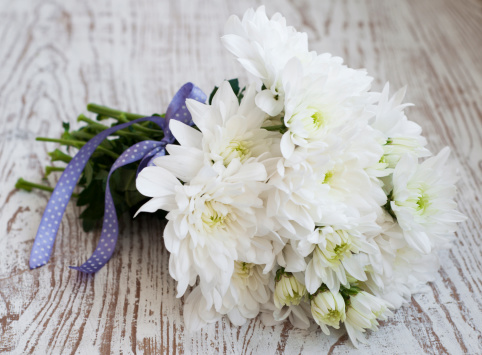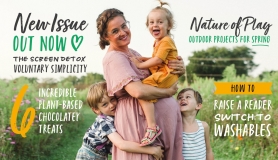Just 20% of our flowers are home-grown. Around 80% of the flowers seen in the shops are imported from the Netherlands, Kenya and Colombia. Not only does this present significant environmental problems in terms of air miles – simply getting those pretty flowers from the fields and into your local supermarket – the flower industry is culpable in many other ethical dilemmas. Pesticides are a major issue: because flowers are not for human consumption there is minimal legislation on what pesticides are used. This in turn has an impact on the health of growers and the ecosystems in areas where flowers are farmed.
Furthermore, the exploitative working conditions found on the huge multinational farms in Africa and South America is enough to make you think twice before choosing that bouquet. The charity War on Want reported that in Colombia workers endure long hours in hot greenhouses, many for less than $1 a day and on short term contracts. On UK soil, in Cornwall, Defra warned this year that migrant workers are being exploited during picking season.
But there’s no reason to pick up a pesticide-ridden, air-mile laden bunch of flowers when there are so many great companies and flower farms working with ethical principles in the UK. A bit of forward-planning and you can gift your loved ones with flowers that are bursting with seasonal vitality and grown on farms where birds, bees and butterflies are the most important customers. Short of picking your own from the garden, these are the most ethical ways you can get your flower hit without damaging the environment:
Wiggly Wigglers – Wiggly Wigglers Florist is a business branch of the Herefordshire-based composting and wormery experts. All of their gorgeous flowers are grown in the UK to support our ecosystems. They usually have upwards of 15 different varieties of flowers and foliage in their floristry, some of which are grown on their farm and others that are sourced from a network of UK flower farmers. Each bunch is individually made for you, so you can express your love with a clear conscience through beautiful British flowers.
Lettuce Flowers http://www.lettuceflowers.co.uk – this ethical company provide beautiful edible flower displays for your special event. Edible flowers, salads and tasty herbs are combined to create living arrangements that guests can take home and plant up. Each Lettuce Flowers display comes with a recipe to further inspire, such as Geranium Butter. All of the plants are grown in the UK and 95% are sourced from local nurseries – the environment is at the heart of Lettuce Flowers’ business ethos.
Green and gorgeous flowers – Seasonal flowers are the buzzword at this Oxfordshire-based flower farm. Discover beautiful English favourites alongside the wild and unexpected. For budding florists, Green and Gorgeous Flowers run floristry and growing courses from their lush farm, so brides can get involved in creating their own perfect flowers for the big day. These magnanimous folk even share their skills on running a business – for those keen to make a living from cut flowers, there is a course on Flower Farming for Beginners.
Flowers from the Farm – A UK initiative bringing together the best in British flower growers, Flowers from the Farm is a network of farmers, gardeners and smallholders. The network was set up in 2009 by Gill Hodgson who started by selling her favourite flowers from her farm gate – beloved country varieties like cosmos, sweet peas, love-in-a-mist and zinnia meant that they were snapped up. She decided to create a place where small growers could come together and remind the British public of the pleasures of a sweet-scented and seasonal country bouquet. Here you can choose the kinds of flowers you’re looking for, or search on the Growers Map to find a flower farmer near you. You’ll need to check with the individual farm you choose to ensure they don’t use pesticides etc. and are committed to environmental practises.
Darling and Green – if you’re planning a wedding and want to ensure your flowers are not only gorgeous but green, look no further. Darling and Green flowers are grown by friends Katy and Kirsty on their cutting farm on the North Yorkshire Moors. Organically grown and seasonal, each bouquet is unique to your individual specifications.
Arena Flowers – for those more traditional bouquets, Arena Flowers offers flowers that have been ethically grown (though there are still air-miles to consider). They were the first florists to adhere to the Fair Flowers Fair Plants (FFP) standards, ensuring that both workers and the environment are treated sustainably. Producers have to meet high standards regarding environmental and social aspects of their production to achieve certification following inspection by independent certification organisations. Though of course it’s preferable to choose British-grown flowers and save on air-miles, if you choose flowers flown from abroad always ensure that they have been grown to FFP standards. You can find out more about the Fair Flowers Fair Plants scheme here.
The Waitrose Foundation – If you are going to pick up a bunch of foreign flowers in a supermarket, opt for Waitrose and look for the Waitrose Foundation logo. This is a charity, founded in 2005, through which the supermarket buys flowers from Africa. Since its launch it has raised £5.5m, which is channelled into social, economic and educational projects on African farms. The Waitrose Foundation roses are grown to LEAF (Linking Environment and Farming) standards so customers know the producers are operating in an environmentally responsible way.







